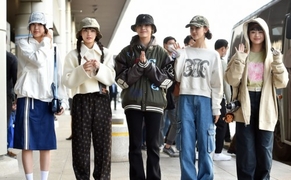By AsiaToday reporter Lee Sang-hak
# Kim, a 27-year-old male job seeker, was preparing for an interview with a foreign logistics company last month after applying for a document examining but he hasn't heard from the company. He knew he had been dropped from the paper screening only after finding out some people's interview reviews posted on an internet community a couple of days later.
# Koo, a 26-year-old female applicant, applied to a cosmetics company and had a final interview last month. They even hinted at a call back. She waited until the scheduled start date for work, but received nothing and realized that she failed the interview.
As the summer break has begun, university students are preparing for jobs of the future. In the meantime, many applicants are anxiously waiting to hear back about a job as the majority of companies are not sending rejection letters to candidates whom they have not selected. In particular, the criticism is intensifying as many applicants lose an opportunity to apply to other companies when their job interview schedule overlaps because they would choose to wait to learn if they had been accepted or not.
Kang, 28, said, "I need to know quickly whether I passed or not, so I can get rid of my empty hope and prepare for the recruitment of other companies. But some companies never care to send me a rejection letter. From the moment the interview is over, I check my phone over and over waiting for the results. It's really frustrating to never hear back from the company and hear back from other successful applicants later."
Another job seeker Kang, 27, said, "If an applicant makes it to the final interview and receives nothing from the company, that means the company is ignoring the applicant." She continued, "After interviewing company A and waiting for the results, I gave up on interviewing company B. I gave it up because A's scheduled start date of work and B's interview would overlap. But A didn't send me a rejection letter and I felt very bitter."
Experts say that many companies are afraid to send rejection letters to applicants, but it's actually advisable to send out rejection letters.
Choi Jin-hee, CEO of Career Vision, said, "Some applicants cling tenaciously to the reason for their disqualification. Sine even open themselves up for discrimination suits. That makes companies worried. Besides, they don't want to make any controversies."
"Failure notices help the applicants to let go of it and focus their efforts on other companies quickly. Applicants can be frustrated if they get a rejection letter, but it will eventually give the company a great impression," she said.
Meanwhile, employment portal site Saramin queried 1,095 job seekers last year, and found that 9 out of 10 respondents experienced the position of "eul" (party B, who is led), and 42.5% said they experienced it when "only successful applicants heard back."
#applicant #job seeker #application #employment #rejection letter
Copyright by Asiatoday
Most Read
-
1
-
2
-
3
-
4
-
5
-
6
-
7





















